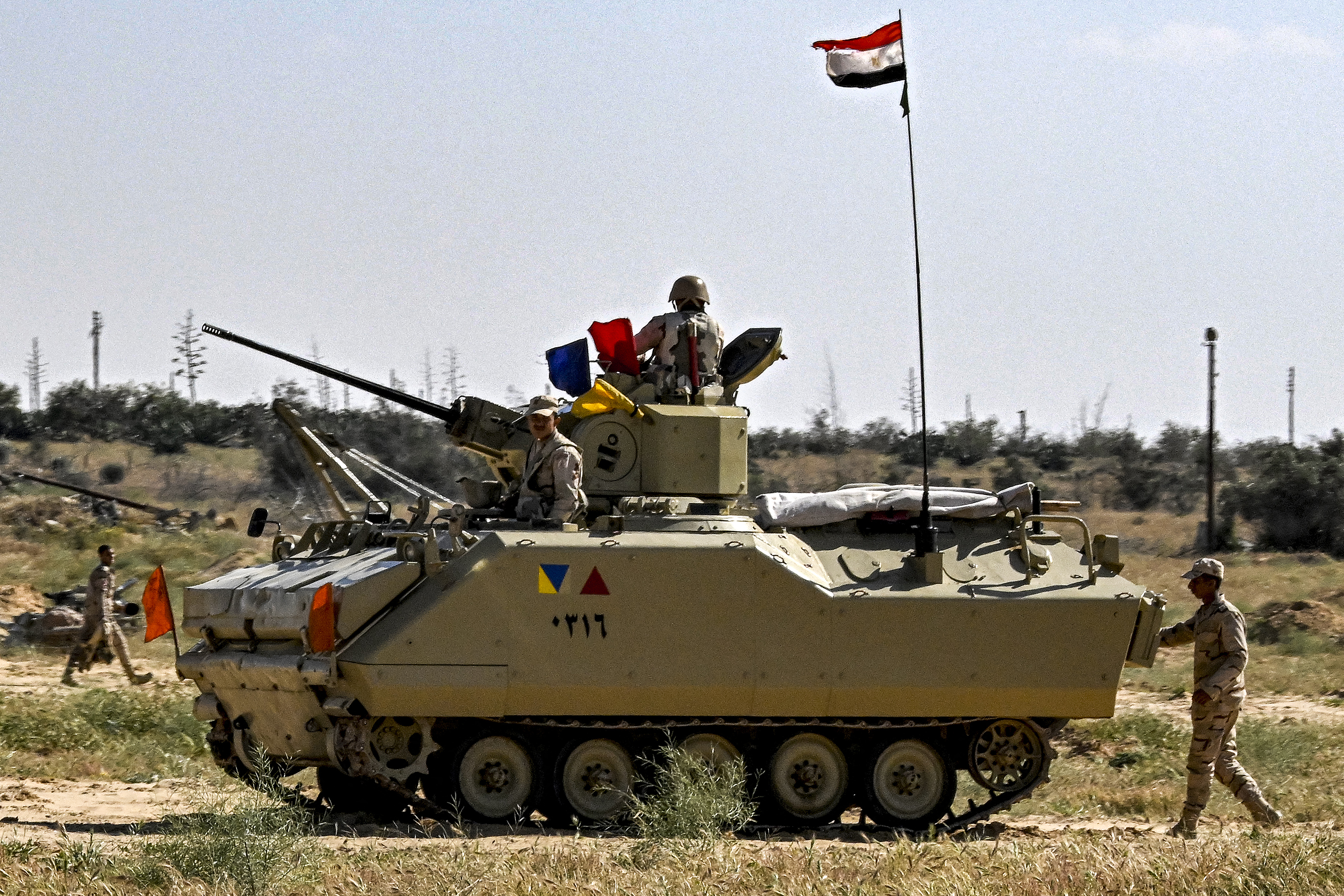Egypt responds to Israel: Military presence in Sinai is "for security and within the framework of the treaty"

In a new development in the diplomatic dispute between the two countries, the Egyptian General Authority for Information confirmed in an official statement that the presence of the armed forces in Sinai is aimed at securing the borders against risks and terrorism, and is coordinated in advance with the parties to the peace treaty, in response to media reports about Israeli requests to pressure Egypt to reduce this deployment.
The Egyptian response came in light of a report published by the American Axios media outlet on Saturday, which stated that Israeli Prime Minister Benjamin Netanyahu asked President Donald Trump's administration to pressure Egypt to limit its military presence in Sinai.
According to the official statement, the authority clarified that "the forces present in Sinai are primarily aimed at securing the Egyptian borders against all risks, including terrorist operations and smuggling, and are coordinated in advance with the parties to the peace treaty, which Egypt is keen to maintain, as it has never violated a treaty or agreement throughout its history."
This response directly contradicts claims made by Israeli officials reported by Axios, who alleged that "Egypt has established military infrastructure in Sinai, some of which can be used for offensive purposes in areas where only light weapons are permitted under the 1979 peace treaty." The officials also claimed that "the Egyptians have expanded runways at air bases in Sinai to allow fighter jets to use them, and have built underground facilities that Israeli intelligence believes could be used to store missiles."
The military buildup represents, according to Israeli officials, "another major point of tension between the two countries as the war in Gaza continues." Tensions have recently escalated due to Egypt's declared stance against Israeli policies in the sector.
In this regard, the Egyptian statement reiterated its "complete rejection of the expansion of military operations in Gaza and the displacement of Palestinians from their lands, and its support for the Palestinian people's right to establish their independent state according to the two-state solution.
The dispute is not limited to security issues, but has extended to controversial statements. Egypt recently demanded official clarifications regarding Netanyahu's statements about his dreams of establishing a "Greater Israel."
The statement confirmed that Egypt "condemns what has been raised in some Israeli media about what is called 'Greater Israel'," considering that this matter "reflects a provocation of instability and an Israeli tendency to reject the adoption of the peace option in the region, and insistence on escalation."
The statement concluded by reaffirming Egypt's firm position, which is that "there is no way to achieve peace except through a return to negotiations and ending the war on Gaza, leading to the establishment of a Palestinian state on the lines of June 4, 1967, with East Jerusalem as its capital, based on the two-state solution and relevant international resolutions."